This post may contain affiliate links. Please read my affiliate policy.
One of the easiest ways to start the health journey is to swap out refined sugar with natural sweeteners. There are so many great whole-food options to choose from. Yet how do you know which healthy sugar alternatives to use and when? I’m here to help!
I’ve got the skinny on all ingredients both natural and sweet, and how to use natural sweeteners to enhance your food, not overpower it.
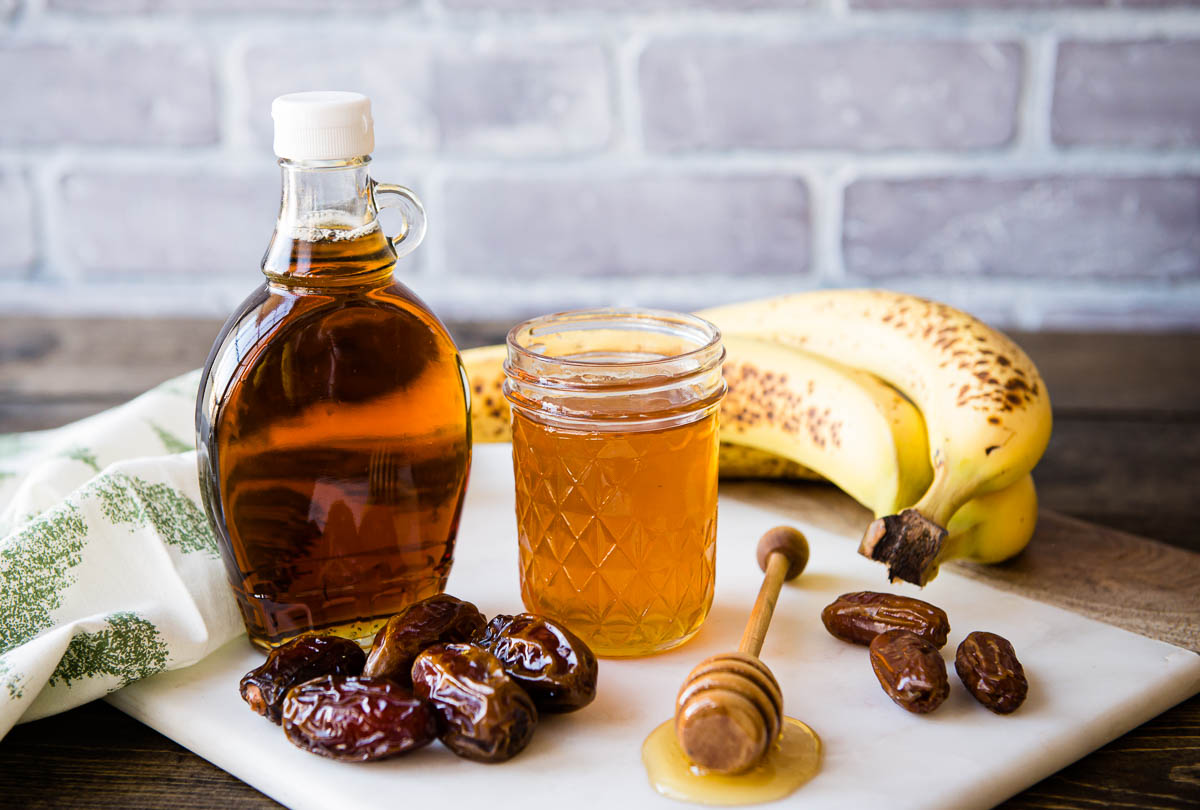
I am all for using real sugar in its most natural form, but I know that doesn’t work for everyone, every time. So let’s talk about the best natural sweeteners as well as the best healthy alternatives.
Table of Contents
Sugar Explained
First, let’s get some terminology straight. When I talk about refined sugar, I’m talking about all processed sugar. What we like to think of as ‘sugar’ has 56+ different names.
These names include sucrose, fructose, dextrose, maltodextrin, corn syrup, high fructose corn syrup, glucose, blackstrap molasses, beet sugar, carob syrup, cane sugar and so many more.
Sugar can come from a few different sources, some natural and some not.
Refined sugar
Table sugar typically comes from processed sugar cane plants and sugar beets. High fructose corn syrup comes from processed corn. The processes used to make these ingredients involve chemicals, additives and preservatives.
Some recent studies state that added sugar can lead to a number of illnesses including Cardiovascular Disease and Type II Diabetes and that there isn’t much difference between the type of refined sugar (raw cane sugar, table sugar or high fructose corn syrup).
Let’s dive into some better, safer options!
Top 4 Natural Sweeteners
Since we can’t just avoid sugar altogether, and it is naturally occurring in several foods, let’s look at the best natural sweetener options and how to use them.
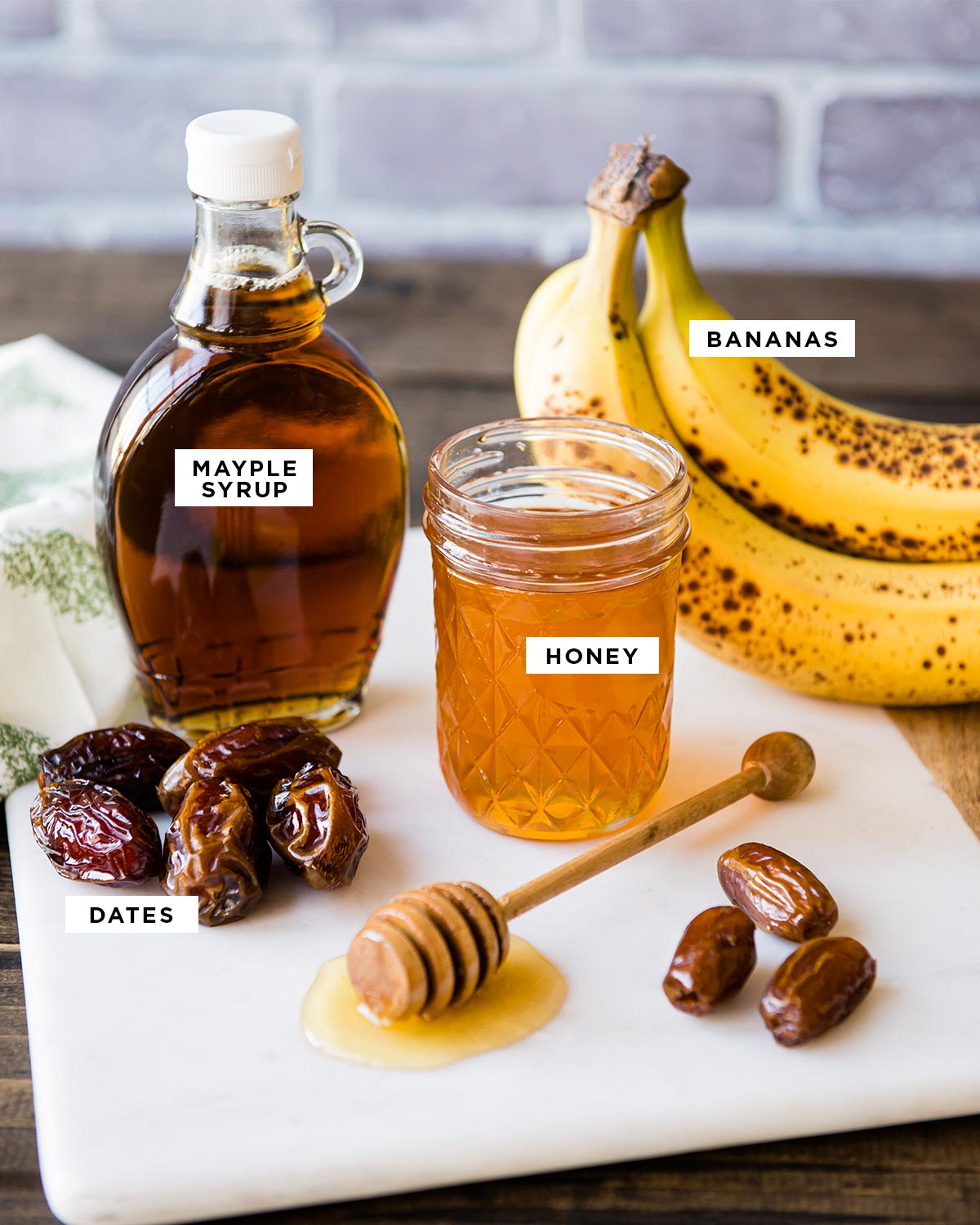
- Bananas: That’s right! Bananas are fruit and are used to naturally sweeten a variety of dishes. I love tossing them into smoothies like a creamy banana smoothie or a kale banana smoothie. If you’re worried about them ripening too quickly, learn how to freeze bananas and have them on hand at all times!
- Dates: Another great fruit-turned-sweetener! It is easy to use dates in caramel protein shakes or caramel dip. I also love that dates contain 8 grams of fiber and are loaded with antioxidants.
- Maple syrup: This may shock you but this liquid comes from maple trees. It is sugar, yet maple syrup contains vitamins and minerals like manganese and zinc which gives it more nutrition than refined sugar. I like using it in baked goods like chocolate chip cookies and to sweeten snacks like energy balls.
- Honey: If you aren’t vegan then this is a great liquid sweetener that is also naturally occurring. Honey has been used for centuries for medicinal purposes. It’s a great option for my ginger lemon honey tea as well as this vanilla bean yogurt smoothie.
These are my go-tos for most of my cooking, baking and smoothie making.
While my favorite natural sweeteners are the least processed and are not refined like typical white sugar, they are all still sugar. So if you need to watch your blood glucose levels for any reason then you may need to look for healthy sugar alternatives.
What is a Healthy Alternative to Sugar?
There are low-sugar recipes that use the real stuff like these smoothies for diabetics or this free diabetic meal plan, there are recipes that aren’t low in sugar yet you still want to make them! I totally get it. Not even low-sugar fruits can cut it at times.
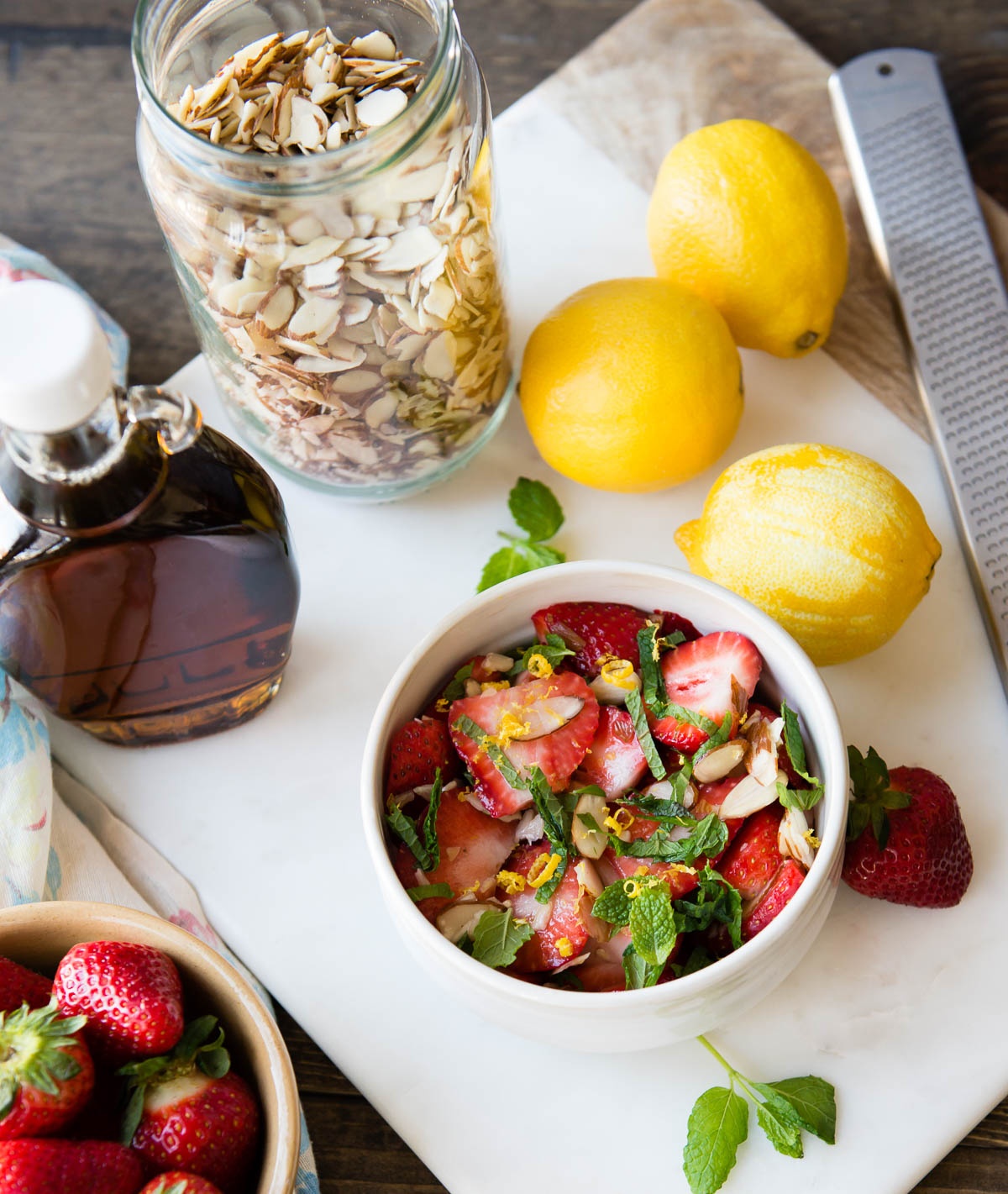
What can we use that doesn’t come in a pink package and make everything taste like chemicals??
Let’s look at some healthy alternatives sugar alternatives on the market now:
- Stevia: A truly naturally occurring leaf called Stevia rebaudiana. It is much sweeter than sugar so a little goes a long way to sweeten coffee and baked goods. A recent study shows that those eating food with stevia had 15% lower blood glucose after one hour than those that ate the same food with refined sugar. However, turning this leaf into a sweetener turns it into a highly processed product (like all of these alternatives).
- Monk fruit: This melon is found in southern China and has been used for centuries in Chinese medicine, though is now becoming popular by turning its dried fruit into a sweetener. It’s traditionally used for its anti-inflammatory properties. It does have a stronger aftertaste, so try it in small amounts before adding it to something big.
- Erythritol: This is something called “sugar alcohol” and is found in small amounts in some produce. It has only a fraction of the calories of white sugar and doesn’t appear to raise blood sugar levels.
- Xylitol: This is another “sugar alcohol.” There is no real nutrition in this option, but it does have almost half the calories of white sugar.
These are all found in local grocery stores or online. As always, read the ingredient list to ensure you aren’t getting any weird additives in your product, especially when these sweeteners are in their liquid form.
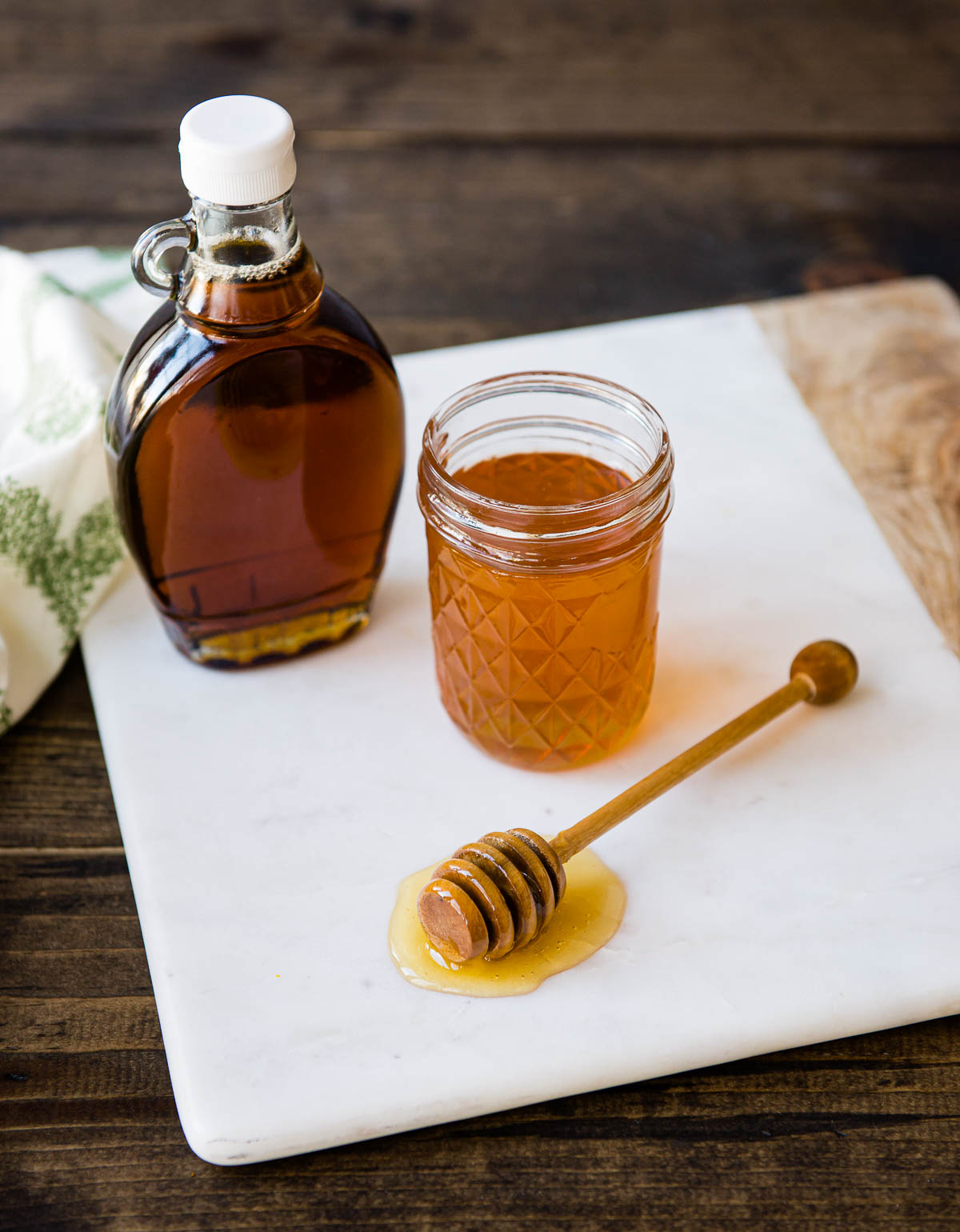
Natural Sweeteners FAQs
The most natural sweeteners to use include bananas, maple syrup, dates and honey. If you are looking for a sugar substitute that is still naturally occurring look for stevia, erythritol, xylitol and monk fruit.
Unrefined, unprocessed sugars include foods like maple syrup, dates, honey and bananas. Most fruits have natural sugar in them and can be used to sweeten recipes in various ways. If you want a natural sugar alternative then look at ingredients like stevia, erythritol, xylitol and monk fruit. You can find many of these in granule form as well as liquid, depending on how you want to use them.
If you are tracking your sugar intake and want a natural sugar alternative for baking, try something like Stevia. It has a mild aftertaste yet acts like sugar in baked goods and can be easily swapped in. Skip out on the “sugar-free” sweeteners like Sweet N’ Low.

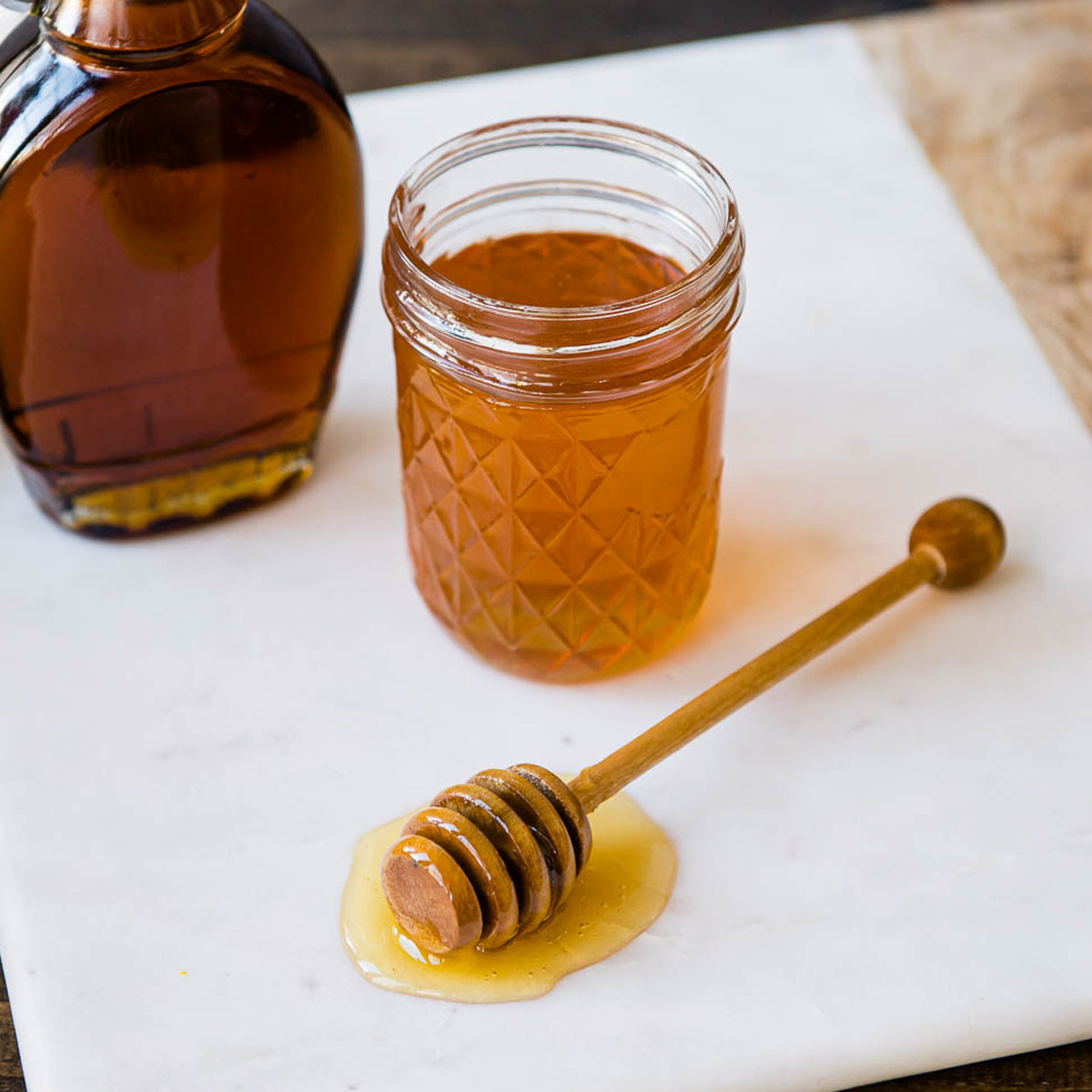
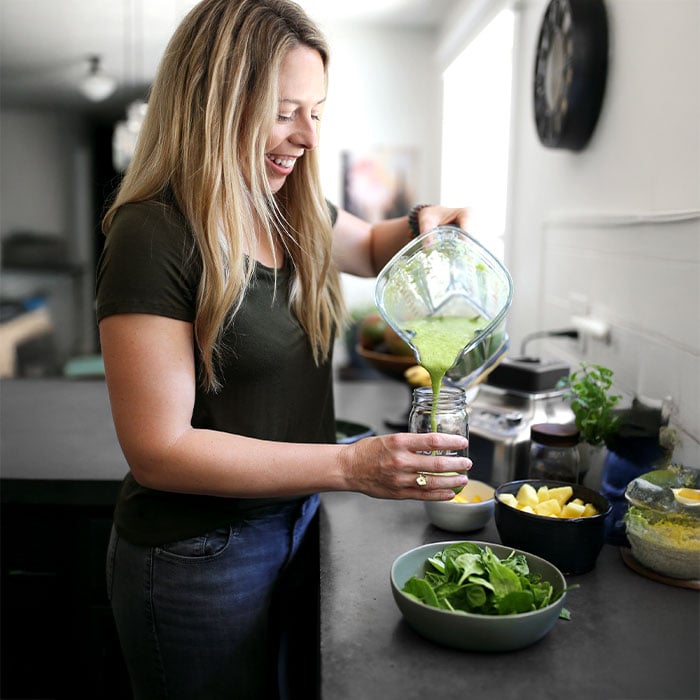









Thanks for sharing about “non sugar” sweeteners. I like having options and knowing what I’m looking for.
Hi Erin! “Non sugar” sweeteners are such a great swap when we are looking for better options. I’m glad this blog post helped you know what to look for!
Love all of these ideas!!!! I want to start using more dates!
Dates are so dreamy Sara! Have you tried our Cinnamon Date Smoothie yet? It’s delish!!!
I’ve been really trying to eat less refined sugars and this list is perfect. Plus, that strawberry recipes looks amazing!
This guide is so helpful! I love this snack during the cleanse, and now I’ve got some good sweeteners to add to my list for other recipes. Thanks!
Heaven in a bowl is a good name for that dish! It is so wonderful!
We think so too, Rita!! 🙂
Ive found that using white grapes,pears, or apples help sweeten my smoothies. Have you ever tried it? They also add some thickness in my opinion.
Hi Queen,
Those are all great sweeteners, they also tend to thicken your smoothie because of the naturally occurring pectin in those fruits (especially apples)!
Cheers 🙂
I love local maple syrup and raw honey. Is it safe to bake with honey? Many recipes call for it, but many web sites indicate that heat changes its composition, thus making it toxic…which is true?
Hi Tracy,
We love baking with honey! 🙂
Thanks for sharing! I also love adding honey and maple syrup to my smoothies! Another awesome thing about using honey is that if you use local, raw honey, I notice it helps with my allergies! Tis the season. 🙂
Rawsome! Thanks for sharing, Veronica!
I prefer agave to honey. Not a fan of the taste of honey. My
Diabetics an tells me that agave has a lower GI and tends not to elevate my blood sugar. I like the taste.
Hi Thomas,
We try to avoid agave, it’s highly refined and is known to have high fructose content, which is linked to obesity and diabetes (among other things). But you need to decide what works for you!
Cheers 🙂
Thanks for posting this. I love honey as a natural sweetener in green smoothies, no need for sugar at all!
Hi Marta,
We do too! Honey adds a great flavor + sweetness to our green smoothies! 🙂